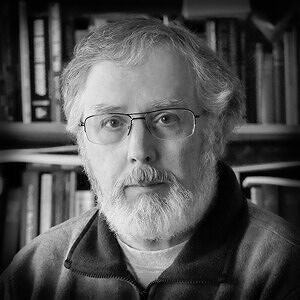Interview with author P.D Blackwell
- Writer's Life

- Jan 18, 2024
- 3 min read
With an extensive background in crafting thought-provoking narratives that push the boundaries of imagination, P.D. Blackwell’s latest literary endeavor, "Chaos Rising: The Erstallius Chronicles, Volume One," stands as a testament to his storytelling prowess.
Volume One of this gripping saga catapults readers into a world where the destruction of a mining colony serves as the catalyst for a seismic shift in alliances, plunging great clans into the throes of a devastating war. It is within this tumultuous backdrop that Blackwell's narrative truly shines.
What distinguishes P.D. Blackwell's fiction from the myriad voices in the genre is his profound exploration of the human condition. He possesses an uncanny ability to distill complex ideas into compelling tales that captivate and resonate with readers on a profound level.
Tell us about your background.
I joined the Science Fiction Book Club while in the seventh grade. Those fabulous stories kick-started my interest in writing. I majored in Telecommunications in college, had a great GPA, but quit college because of monetary demands. I shifted my focus to Theology and spent the next fifteen years studying the Bible and other religious texts. Physics and other sciences were also part of my studies.
My academic path led to Lawless Tradition, a non-fiction analysis of Christian doctrine published earlier this year.
My interest in Theology was born from events that transpired when I was very young – the potential subject of a future book.
How long have you been writing fiction?
I wrote my first short story in the late 1970s but never published―it was less than perfect, actually awful. During the mid 1980s, I continued writing short stories that were never submitted for publication. After a few more years of honing my skill as a writer, one of the short stories grew into my first novel, Chaos Rising. Another story, For Elisabeth, a thriller that revolves around childhood friendship and the future we create by the things we refuse, waits for me to expand into another novel.
You’re working on a series, what gave you the idea?
All stories are about conflict in one form or another. Few of the sci-fi novels I read in my youth impressed me with how they presented human interaction with aliens. That doesn’t mean they were terrible stories. Edgar Rice Buroughs’ Mars books are brilliant, but they are more fantasy than science. I wanted to create a realistic encounter story that would diverge from the standard alien/human interactions in other novels that often end with a slugfest between the hero and the aliens. What would happen if the humans did not recognize the aliens, and if the aliens did not recognize the humans? What if that hidden existence caused harm to both species?
What’s the title of the first book and of the series? What is the significance of the titles?
Chaos Rising is the title of the first book and presents the events that lead to the gradual collapse of the Merchant Alliance of Great Clans. The Alliance is the governing organization that has overseen human expansion in the galaxy, and maintained a fragile peace among the Great Clans. After a mining colony is destroyed the clans splinter into multiple factions.
The Erstallius Chronicles is the title of the series. The changes affecting the Merchant Alliance are revealed via events that impact Clan Erstallius and those who ally with the clan to stop the warfare erupting among the inhabited worlds. Those events include specific assaults by enemy clans and the newly discovered threat from mysterious aliens.
What is one takeaway you would like readers to learn after reading your books?
Despite the human failure to manage civilization without conflict, a successful way forward is possible if we focus on the correct path. The path is always there. We just need to find it.
Where were your biggest challenges when writing the initial book?
Creating an alien perspective. They are not human, so they see things via a different physicality, but also with a different mentality. How do we communicate with an entity that does not share similar biology, experience and language? How do they communicate with us? When there is interaction, is it intentional communication or just a haphazard event? What would make us notice each other if we could not perceive each other's existence under normal circumstances?
Who are some of your favorite writers?
Frank Herbert, for his attention to detail and well crafted composition.
Isaac Asimov, for his generation-spanning stories. From “Foundation,” to “The Last Question.”
Robert Heinlein, for “Stranger in a Strange Land.”
Ray Bradbury, for his fanciful tales in “The Illustrated Man,” and “The Martian Chronicles.”
Arthur C. Clark, for his scientific accuracy in “The Sentinel,” “The Sphere,” “Childhood’s End,” and “Randevious with Rama.”
What do you hope this book says about you as a writer?
His characters are smart, and the journey exceeded expectations.
What can we expect more from you in the future?
More Science Fiction. I am currently working on Volume Three of the Erstallius Chronicles. And then For Elizabeth, and the book waiting in the wings based on my early life.
For more information please visit: https://www.pdblackwell.com/books


